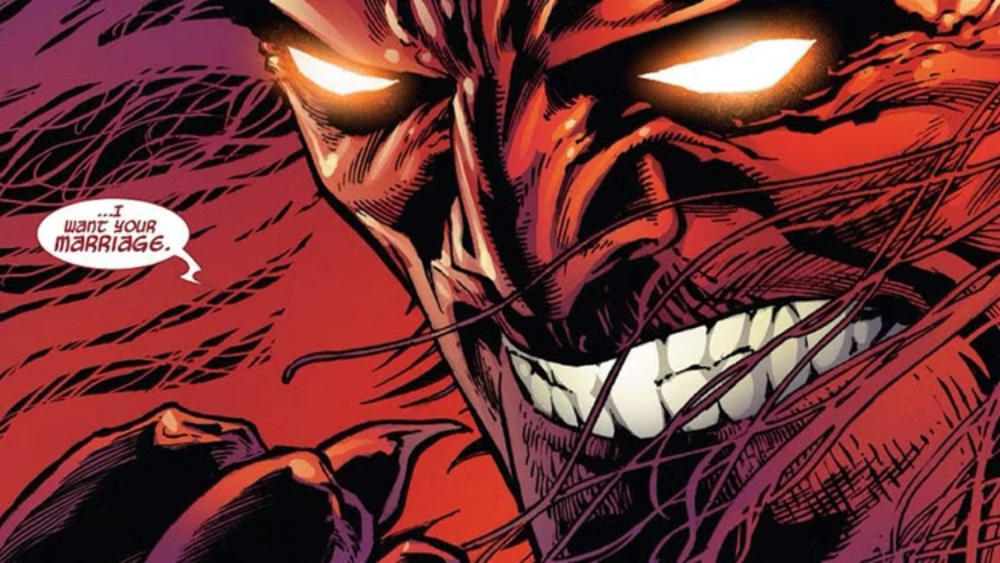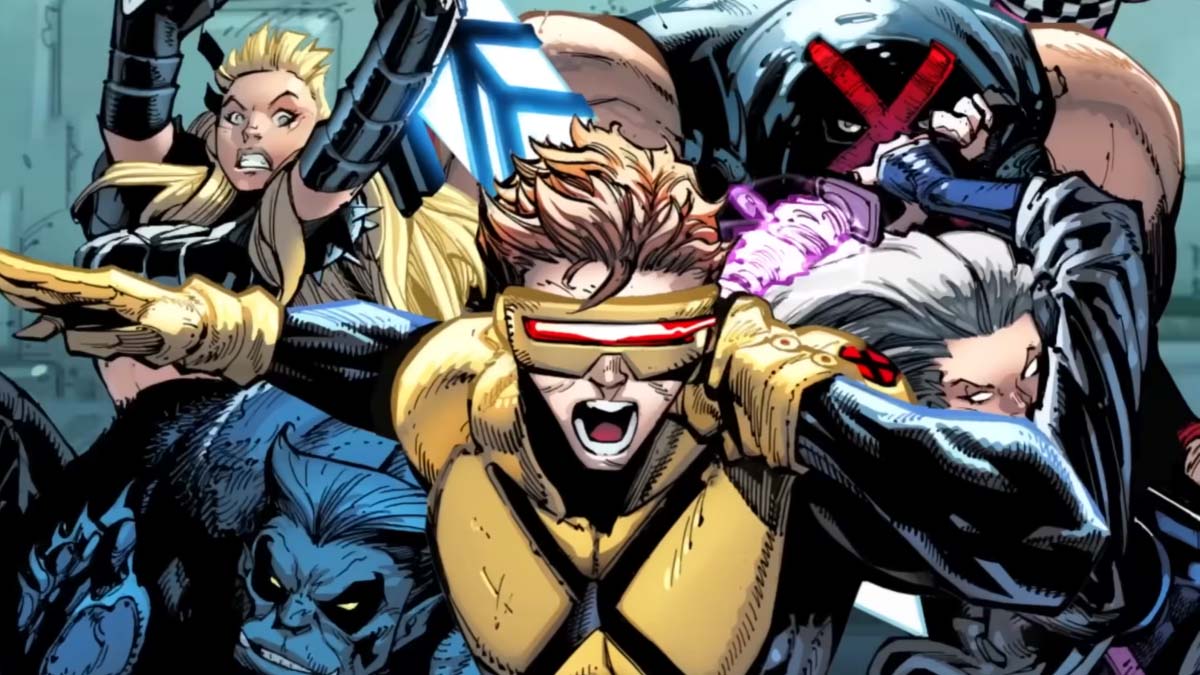
For nearly a century, Marvel and DC Comics have captivated readers with tales of their iconic superheroes and villains. These stories are not just the product of writers collaborating with artists, but also involve colorists to set the right mood, letterers to breathe life into captions, editors who facilitate teamwork, and ensure that the best narratives are told. Pivotal figures in the history of superhero comics include editors like Stan Lee, Julius Schwartz, Len Wein, Tom Brevoort, Joe Quesada, Axel Alonso, and many others, whose influence has shaped the genre significantly. The editor’s role, intricate as it is, is a crucial component of the comic book industry, often proving to be both a boon and a challenge for fans due to its complexity.
In comics, there’s hardly a term more disliked than “editorial mandate,” and its significance has grown increasingly negative over time. An editorial mandate is one of the most despised elements in the comic book world. You might not notice them when everything runs smoothly, but they frequently cause the least appealing aspects of superhero narratives. Frequently, the editors at DC and Marvel have been the main antagonists in this medium, interfering with characters and storylines that fans cherish, often leading to changes that are detrimental to the fan base.
Editorial Mandates Have Damaged Comics Immensely in the 21st Century

Editorial mandates aren’t inherently malicious; rather, they serve a crucial role in ensuring that writers and artists deliver engaging stories that align with years of character development. An ideal editor steps back to allow creative freedom while maintaining narrative coherence. However, issues arise when the editor’s perception of a character diverges from the general audience’s. The ill-fated Spider-Man series following “One More Day” serves as a prime example of this misalignment, where the story failed to resonate with many readers due to controversial creative decisions.
Spider-Man, one of Marvel’s most successful characters, faced a significant setback during the Clone Saga in the ’90s. Later, Marvel editor Joe Quesada recruited J. Michael Straczynski, known for creating the TV show Babylon 5, to write Spider-Man comics. Readers generally appreciated Straczynski’s take on Spider-Man, especially his portrayal of Peter Parker’s relationship with Mary Jane. However, despite this, The Amazing Spider-Man didn’t regain the popularity it had before the Clone Saga.
Marvel executives felt that the character was more popular when he was unmarried, a belief that is questionable given the sales of pre-Clone Saga comics. They believed that the marriage made Spider-Man seem too mature and devised “One More Day” as a way to reverse this. This decision resulted in removing the marriage from continuity, a move that has been controversial in Spider-Man comics ever since.
As a passionate movie-goer and ardent Spider-Man fan, I’ve found myself grappling with the complexities of editorial mandates in recent times. In their pursuit of a unique vision for our beloved wall-crawler, Quesada and Brevoort have made choices that, unfortunately, don’t resonate with a significant portion of us fans.
Marvel often extols the fervor of those who appreciate an unmarried Spidey, but seem to overlook or even ridicule those with differing opinions. It’s crucial to remember that editors are custodians of these iconic characters, entrusted by their employers to make decisions. Consequently, if an editor isn’t satisfied with the direction a character is taking, they have the power to steer future creators towards specific storylines.
This was evident when I noticed a shift in the narrative of my beloved Spider-Man, which didn’t align with my expectations. It’s a bit disheartening, but I understand that these decisions are made for the greater good of the character and the story arc as a whole.
In the present X-Men “From the Ashes” phase, editor Brevoort’s approach serves as a notable illustration. Following the Krakoa Era, he was appointed as editor for X-Men comics, and his vision for the line is a return to the past. He aims to make the X-Men resemble their ’80s and ’90s selves, leading writers to propose ideas fitting this style. However, not all fans are on board with this approach, which creates issues. Since editors have final authority, we’re left with no choice but to purchase these comics. If you dislike Marvel incorporating MCU elements into the comics, I’m afraid that’s an editorial decision. The aborted Inhumans push of the ’10s was also an editorial mandate. If you don’t want Batman appearing frequently in DC books, remember he’s a popular character, so editors ensure his presence is increased. Editorial decisions often impose changes that readers may not desire. While these decisions can sometimes be beneficial, they only garner attention when they upset readers. As Alan Moore once stated, creatives should not write for the audience because if they did, they would be telling the stories themselves. There have been instances where editorial mandates were advantageous, but as previously mentioned, we rarely recognize them; it’s only the contentious ones that catch our attention.
Editorial Mandates Are a Double-Edged Sword

In the ’90s, I became a dedicated fan of Spider-Man comics, captivated by the Clone Saga during its early stages. Unfortunately, as sales increased, Marvel’s editorial team chose to prolong the story beyond its prime. They attempted to bring John Byrne on board to reboot the series, but things only worsened. Eventually, they brought in Straczynski with the intention of rectifying the situation, which is often the case with editorial mandates. Similar situations can be seen in Grant Morrison’s tenure on New X-Men and more recently, the Krakoa Era. Editorial decisions can sometimes have positive and negative impacts.
The main challenge with editorial mandates is that, similar to fans, editors often have strong opinions about the characters, and they’re reluctant to change these views. In essence, both editors and fans are equally passionate about getting their preferred portrayals of characters.
Read More
- Best Controller Settings for ARC Raiders
- Stephen Colbert Jokes This Could Be Next Job After Late Show Canceled
- DCU Nightwing Contender Addresses Casting Rumors & Reveals His Other Dream DC Role [Exclusive]
- 10 X-Men Batman Could Beat (Ranked By How Hard It’d Be)
- 7 Home Alone Moments That Still Make No Sense (And #2 Is a Plot Hole)
- Is XRP ETF the New Stock Market Rockstar? Find Out Why Everyone’s Obsessed!
- Gwen Stefani Details “Blessing” of Her Holidays With Blake Shelton
- XRP’s Cosmic Dance: $2.46 and Counting 🌌📉
- JRR Tolkien Once Confirmed Lord of the Rings’ 2 Best Scenes (& He’s Right)
- James Gunn & Zack Snyder’s $102 Million Remake Arrives Soon on Netflix
2025-07-21 04:10